Refine
Date Range Clear
Recorded by Clear
Keywords Clear
- volcanolgy 166
- mars 166
- #AGU 164
- Mt.St.Helens 166
- #AGU100 166
- NASA 59
- discovery 55
- #womeninscience 29
- Advice 26
- Collaboration 21
- 382 more
Partnerships Clear
- No matching terms.
Organizations Clear
- American Geophysical Union 34
- National Aeronautics and Space Administration 8
- The American Geophysical Union 4
- American Geopysical Union 3
- NASA 2
- 12 more
Places Clear
- Washington DC 168
- AGU 100 Fall meeting 1
- AGU 2018 Fall Meeting 158
- AGU Fall Meeting Program Commitee 3
- Leadership Development Commitee 2
- 3 more
Languages Clear
- No matching terms.
Initiatives Clear
- No matching terms.
Scott Tyler, hydrology engineer at the University of Nevada Reno and AGU Hydrology section president, shares his work on Antarctic ice shelves, nuclear waste, and stream restoration. Do we need to build sea walls in ten years or in one...
Sandra Cauffman was told growing up in Costa Rica that she couldn’t be an electrical engineer because she was a woman. Decades into a career which has largely involved getting her hands dirty building instruments to fix on spacecraft, the...
Krystal Yhap’s interest in urban water resource management was sparked by the conversations around water safety in Flint, MI. She’s now a graduate assistant at the University of Maryland studying the water system in San Francisco. She talks about her...
While many of the interviews at the conference were with experienced professionals with a career spanning several decades, this interview is with a young up-and-coming PhD student who traveled all the way from the Philippines to attend her first AGU...
David Young, Director of Science at NASA Langley Research Center, discusses his life's work studying the earth's climate. After an early interest in astrophysics, he focused in on earth science due to his desire to do research to help humans....
Padma Yanamandra-Fisher, a research scientist at the Space Science Institute, shares stories of her career in planetary science. She recounts how defining the launch of Voyager was and the significance of the growth in the field since. Padma shares her...
Michael Freilich, Director of NASA's Earth Science Division, shares about his life studying the oceans and Earth as a system. While still in his high school's oceanography club, he started exploring a question about how waves move that later became...
Seismologist Lucy Jones gained recognition for doing a TV interview following the 1992 Joshua Tree earthquake while holding her sleeping infant son. Long before that, she became one of the first American scientists to enter China after it’s normalization in...
William Putman, research meteorologist with NASA , was always fascinated by the way meteorologists on television could predict what was going to happen. But instead of comparing weather reports with the blowing of the trees outside his house, Putman now...
Zachary Wolff talks about how his path to studying and creating models as a graduate student at UC Irvine was not straightforward: he first considered medicine and meteorology before working on a CICE radiation study and discovering his interest. While...
Daniel Minguez, a geophysicist for Chevron, helps create new geologic models of the earth’s layers, trying “to build geologic stories for how different geologic elements got there.” Daniel discusses his work which focuses on boring techniques and navigating plate tectonics....
This Sao Paolo, Brazil based senior space research scientist is best known for explaining geomagnetic storms. In 2017, he received an AGU prize for “cutting-edge work” on space weather and processes. He remembers being a UC Berkeley graduate student in...
How did Biogeoscience become a recognized field of study, with its own journal and sections at AGU? What obstacles did its organizers have to overcome in order to make it a viable field and a welcome presence at AGU? In...
Anne Quidez interviews her father, Bernardo Quidez, about his career and research over the years. They talk about how science and data analysis have changed, becoming more accessible to students, and about Bernardo’s experiences in working for the government to...
Environmental chemist Marc Kramer, Washington State University, has spent an inordinate amount of time talking and climate and weather in the rural parts of your nation. As he says in this interview, “there isn’t a single farmer who isn't interested...
Dr. Claire Parkinson, senior scientist at NASA's Goddard Space Flight Center since 1978, discusses using satellite data to monitor sea ice in the Arctic and Antarctic and serving as project scientist for the NASA satellite Aqua, which makes measurements of...
Putting up tall PVC pipes with pointy sensors to measure electrical fields in an approaching lightning storm may seem reckless, but it’s all part of the job for Timothy Lang. The NASA research scientist spends a lot of time in...
Laurie Brown, Professor Emeritus at the University of Massachusetts, has been a member of AGU for 46 years. She shares her observations on the growth of paleomagnetism at AGU and its importance in helping address climate. She also discusses how...
Jack Kaye, associate director for research at NASA's Earth Science Division, discuss his origins as a chemist and earth scientist, and how he was recruited to Goddard to be a chemist among meteorologists. "My boss would advertise me as his...
Clouds are among the most unpredictable components of climate models. But Norman Loeb is working hard to sort out the shape of cloud patterns in order to improve the accuracy of long-term weather predictions. As far as understanding how all...
With experiences from Azerbaijan, India and the United States, three scientists discuss how they’ve shared their passion for science in society and data transparency from generation to generation. They hope future generations continue to use data to help people withstand...
Jacob Bleacher has spent a great deal of time preparing for Mars and the moon, even though he has never left the Earth’s orbit. The research scientist at Goddard Space Flight Center is currently on detail at NASA Headquarters as...
Ana Jeleapov studies landscape geography and hydrology at the Institute of Ecology and Geography in Moldova. She and a small team of scientists are trying to decrease flooding in Moldova. “Floods are a natural phenomenon” with sometimes deadly impact on...
Michael MacCracken, chief scientist with the Climate Institute came to Washington, DC supposedly for one year, to help ten different agencies involved in climate research to work better together. He stayed for nine years, becoming the liaison to Vice President...
Michele Koppes and Heidi Roop met “on an incredible landscape on the edge of the Greenland ice sheet about two years ago.” The conversation that followed made both of them think more closely about the value of science communication and...
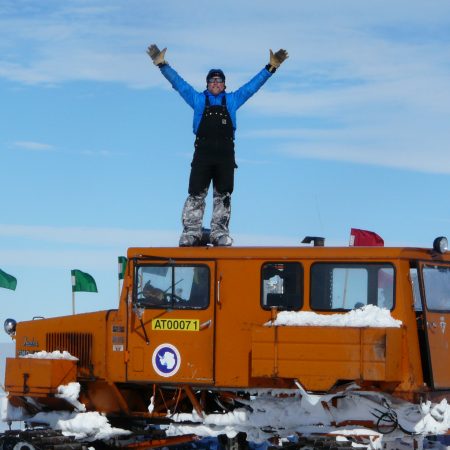

![“I'd love to see more collaboration happen and [it is] integral in terms of science working in the future.” An interview with Krystal Yhap](https://archive.storycorps.org/uploads/2019/07/Headshot-KYhap-450x450.jpg)
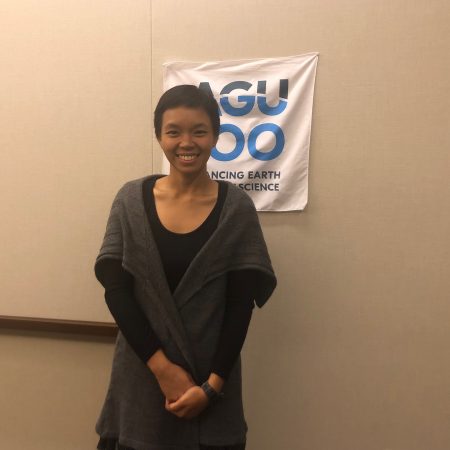

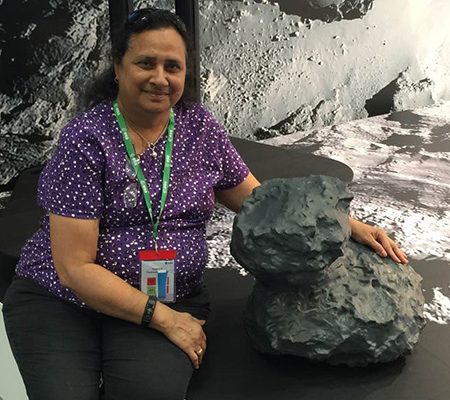
!["I joined an Oceanography club & actually asked the question that ended up [being] my thesis." an interview with Michael Freilich](https://archive.storycorps.org/uploads/2019/02/181212_Freilich-450x450.jpg)
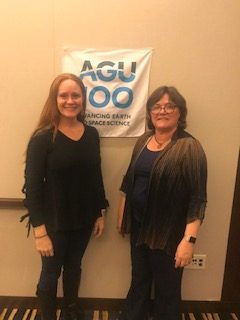
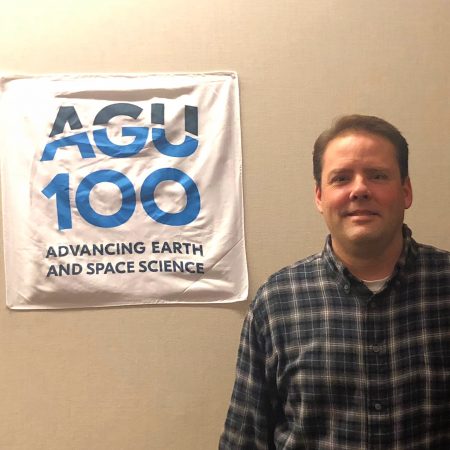
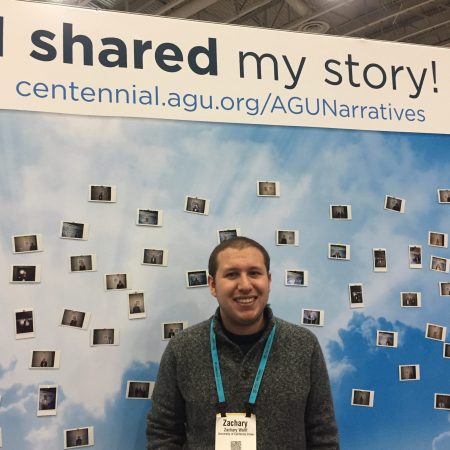

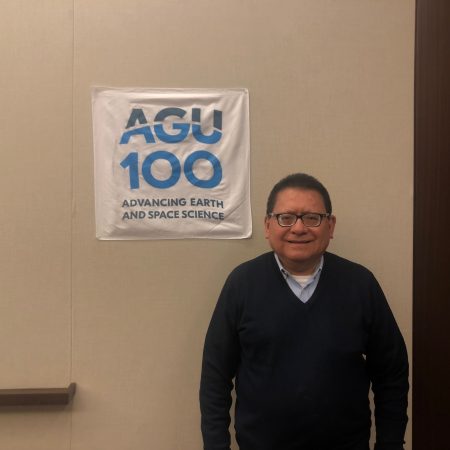

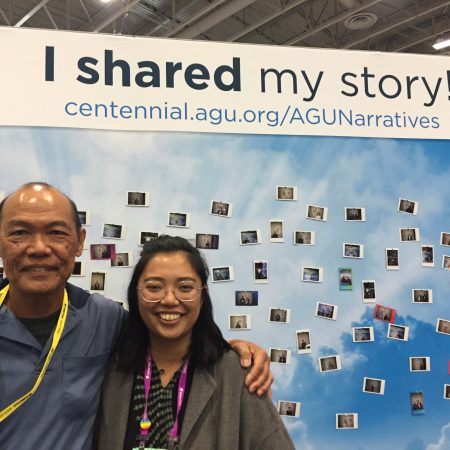
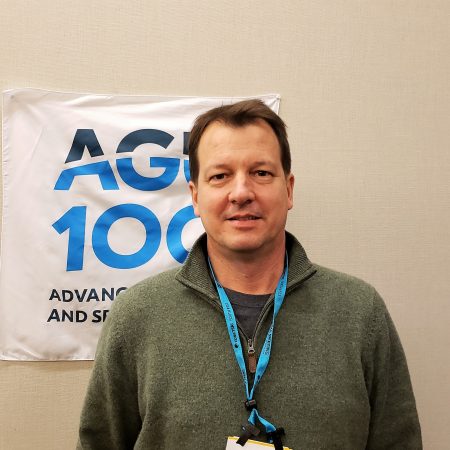


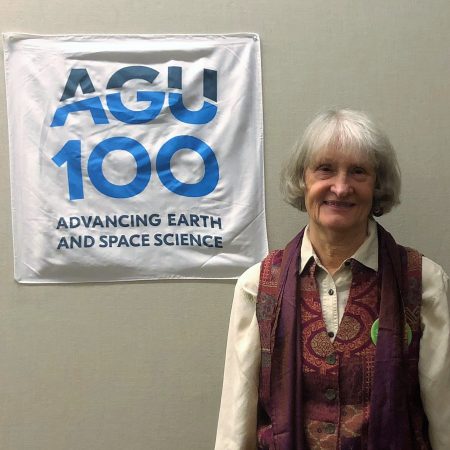


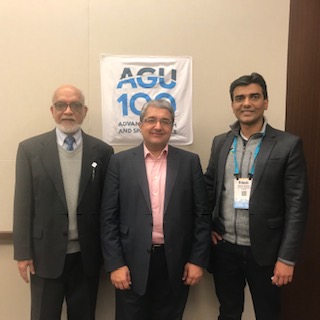
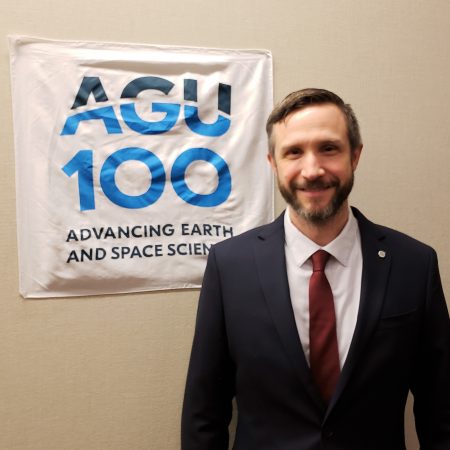
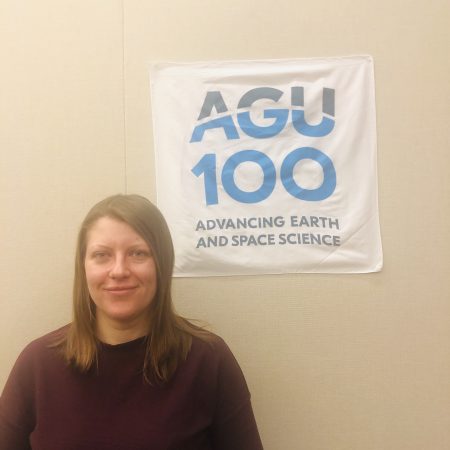
![If you're complaining, you better come back here and try and help us [with climate change policy]." an interview with Michael MacCracken](https://archive.storycorps.org/uploads/2018/12/101218MichaelMacCracken-450x450.jpg)
![“How is it that we collect stories [and] create spaces for those stories to be told?” An interview with Michele Koppes and Heidi Roop](https://archive.storycorps.org/uploads/2019/07/181212_Koppes-and-Roop_Booth-450x450.jpg)